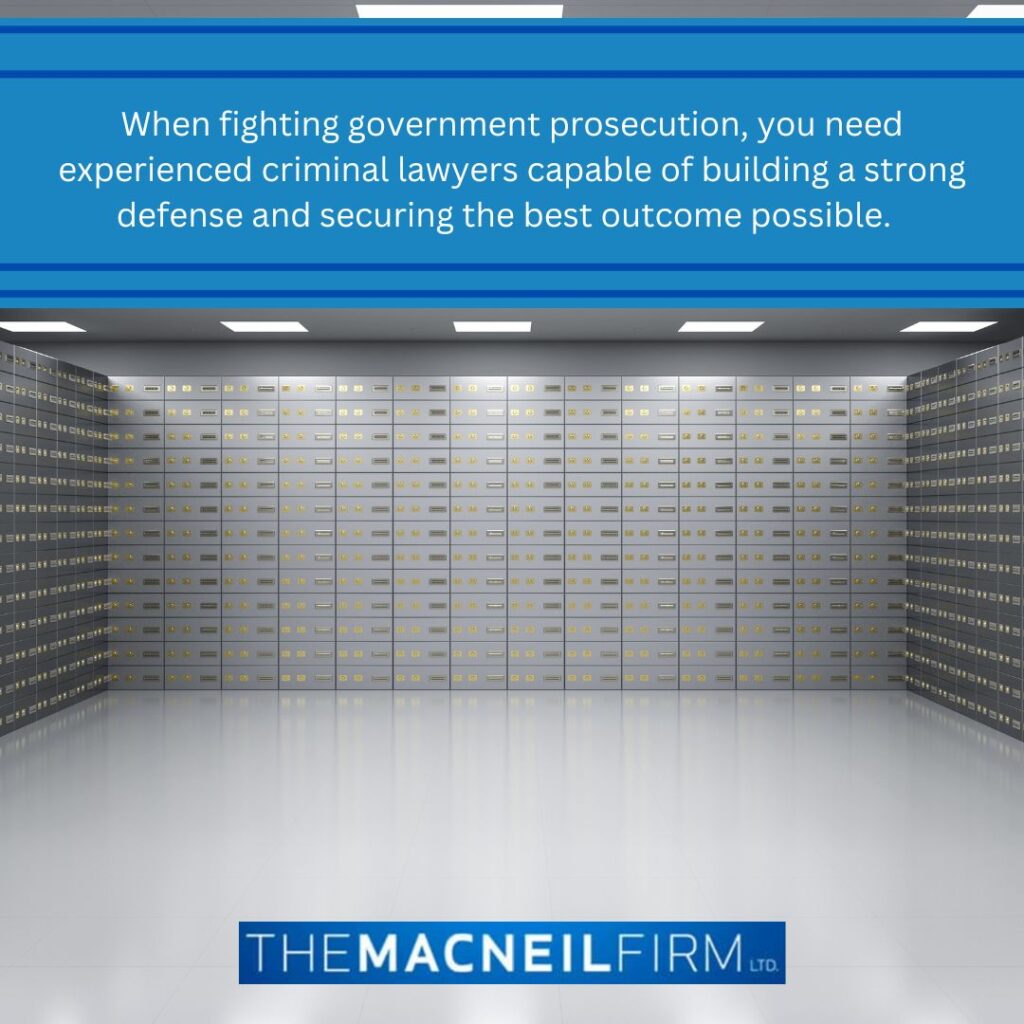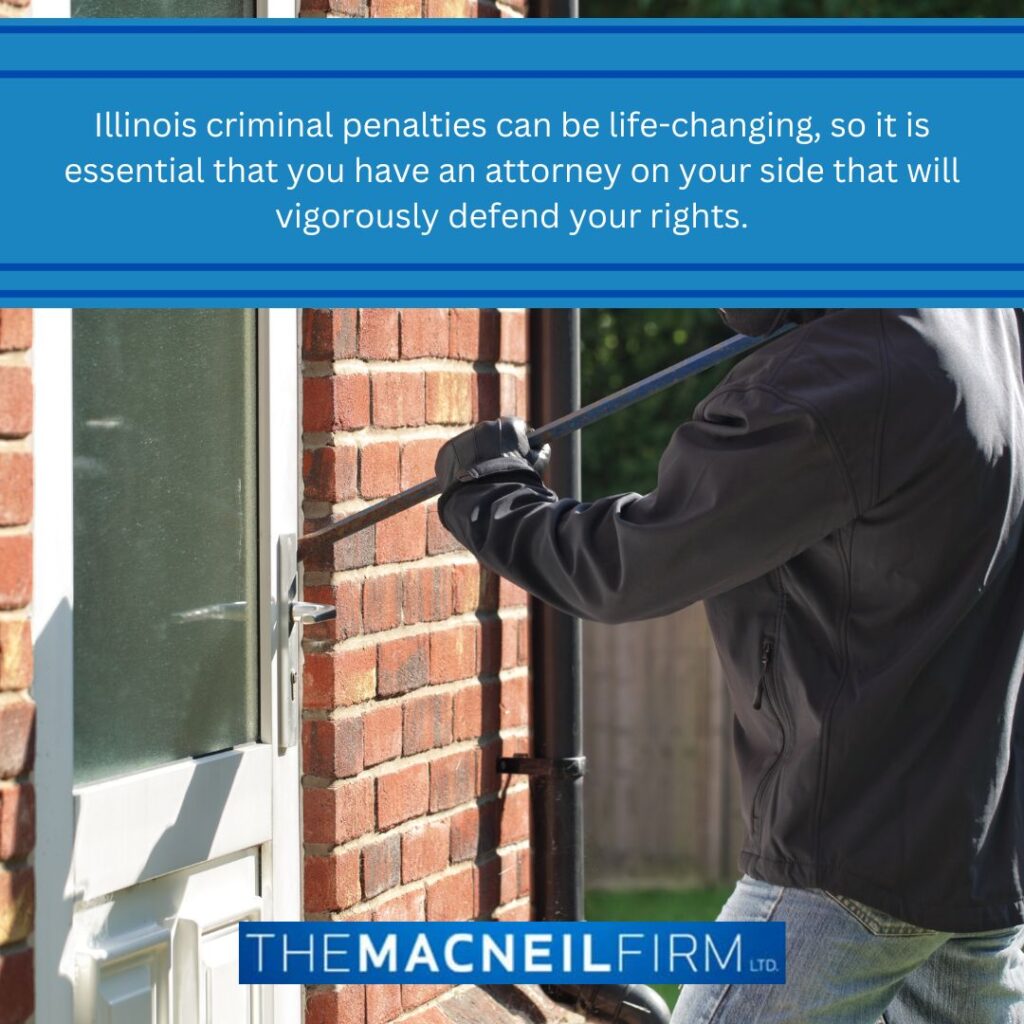Whether you or a loved one need state and federal criminal defense services in Illinois or Indiana, our attorneys can help. Good people can get themselves into bad situations, but our experienced and compassionate legal team takes pride in protecting those people. We work tirelessly to protect your rights and your future, so you don’t have to pay for those mistakes for the rest of your life.
It’s vital to make sure that you have an experienced federal lawyer on your side to help you navigate the complex legal system. Contact our The MacNeil Firm today at (708) 218-0947 today to get a skilled legal team on your side. Our State and federal criminal defense attorneys are here to help you.
Federal Criminal Defense Services
To avoid a lengthy prison sentence, you need to level the playing field by hiring your own aggressive federal criminal lawyer like those at The MacNeil Firm. Our federal criminal attorneys have the experience and tenacity you need when you are defending yourself against big government. We offer innovative defenses and solutions to your federal criminal charges. Our Criminal Defense attorney in Illinois is the best in the area.
It can feel overwhelming to face charges of this magnitude. You will have peace of mind when you choose the law firm that will aggressively represent your interests in court no matter the crime. The MacNeil Firm is a family of lawyers who will take the time to understand your side of the case before pursuing a legal strategy in court. Our State and federal criminal defense attorneys in Illinois are eager to defend you.
Our criminal defense attorneys have experience defending clients charged in federal court with a variety of crimes. Some of our federal criminal defense services include:
- Weapons charges
- Drug conspiracy charges
- Sex offenses
- Child pornography charges
- Solicitation of a minor
- Internet offenses
- Mortgage fraud
- White collar crimes
- Embezzlement charges
- Fraud, and more!
State Criminal Defense Services
Hiring the right law firm to defend you in court makes all of the difference. The MacNeil Firm’s family of criminal defense attorneys has earned a reputation for aggressive criminal defense, individualized representation, and for taking a personal stake in the outcome of your case. Our Criminal Defense attorney in Illinois is highly experienced in this area of law.
We have experience with state-level cases that involve drug charges, battery, theft, burglary, weapons charges, as well as many other felonies and misdemeanors. Some of our additional services include:
- Drug offenses
- Domestic battery
- Weapons charges
- Burglary
- Theft
- Sex crimes
- Murder
- Juvenile law
- Felony defense
- Misdemeanor defense
- Dog fighting
- Juvenile law
Contact our state and federal criminal defense attorneys for a free consultation
Putting yourself in the best possible position for your case is simple. One thing that can make the process easier is retaining a state and federal criminal defense or DUI defense attorney as soon as possible. An attorney at that stage of the proceedings would prevent someone from potentially giving any incriminating statements to police. Having representation early on in a case can help your case, but most people tell me that it puts them at ease and relieves their anxiety.
We handle all types of federal criminal cases, including possession or distribution of narcotics, drugs, cannabis, guns, gun-running, transport of weapons, fraud cases, mortgage fraud, Medicaid fraud, and Medicare fraud. Do not delay in contacting our The MacNeil Firm today. Time is of the essence.


